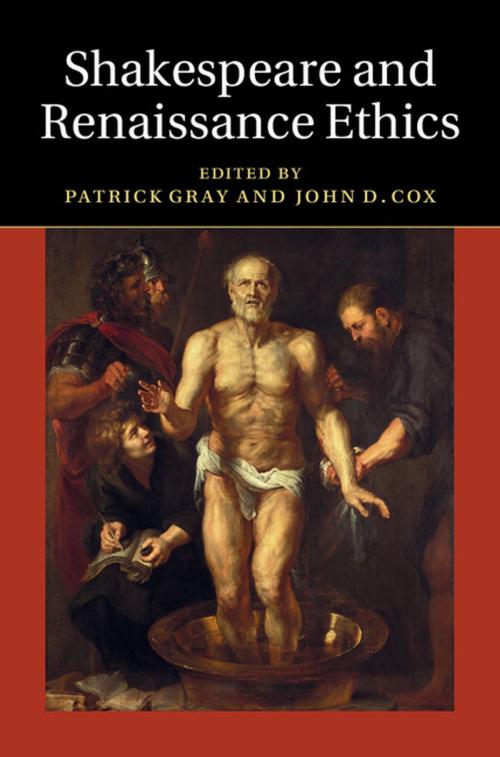Shakespeare and Renaissance Ethics
Fiction & Literature, Literary Theory & Criticism, British, Nonfiction, Religion & Spirituality, Philosophy| Author: | ISBN: | 9781139986564 | |
| Publisher: | Cambridge University Press | Publication: | July 24, 2014 |
| Imprint: | Cambridge University Press | Language: | English |
| Author: | |
| ISBN: | 9781139986564 |
| Publisher: | Cambridge University Press |
| Publication: | July 24, 2014 |
| Imprint: | Cambridge University Press |
| Language: | English |
Written by a distinguished international team of contributors, this volume explores Shakespeare's vivid depictions of moral deliberation and individual choice in light of Renaissance debates about ethics. Examining the intellectual context of Shakespeare's plays, the essays illuminate Shakespeare's engagement with the most pressing moral questions of his time, considering the competing claims of politics, Christian ethics and classical moral philosophy, as well as new perspectives on controversial topics such as conscience, prayer, revenge and suicide. Looking at Shakespeare's responses to emerging schools of thought such as Calvinism and Epicureanism, and assessing comparisons between Shakespeare and his French contemporary Montaigne, the collection addresses questions such as: when does laughter become cruel? How does style reflect moral perspective? Does shame lead to self-awareness? This book is of great interest to scholars and students of Shakespeare studies, Renaissance studies and the history of ethics.
Written by a distinguished international team of contributors, this volume explores Shakespeare's vivid depictions of moral deliberation and individual choice in light of Renaissance debates about ethics. Examining the intellectual context of Shakespeare's plays, the essays illuminate Shakespeare's engagement with the most pressing moral questions of his time, considering the competing claims of politics, Christian ethics and classical moral philosophy, as well as new perspectives on controversial topics such as conscience, prayer, revenge and suicide. Looking at Shakespeare's responses to emerging schools of thought such as Calvinism and Epicureanism, and assessing comparisons between Shakespeare and his French contemporary Montaigne, the collection addresses questions such as: when does laughter become cruel? How does style reflect moral perspective? Does shame lead to self-awareness? This book is of great interest to scholars and students of Shakespeare studies, Renaissance studies and the history of ethics.















